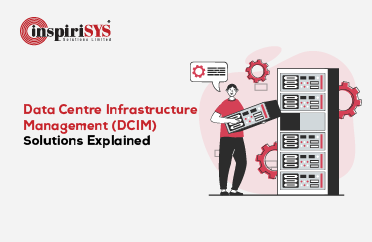The rapid pace of digitalization is creating numerous challenges for banks and other financial institutions. The shift in customer expectations, the rise of disruptive competition, and the adoption of the latest digital technologies are key factors impacting the longevity of players in the financial industry.
Digital transformation in banking demands a firm foundation in the form of a future-proof core banking platform. This raises a few questions – How do legacy systems differ from their modern counterparts? What factors need to be taken into consideration while modernizing core banking platforms? Can banks truly design a future-proof system architecture? This blog will tell you all about it.
The Need for Core Banking System Modernization

Traditional core banking systems are not capable of providing insights into customer behavior. They lack the information that banks need to acquire, retain, and grow their customer base. Most banks are lagging in their digital transformation journeys because of a variety of legacy systems and incomplete data sets that are still in use.
There is an urgent need for banking institutions to establish a more holistic, customer-centric approach that utilizes all the benefits of modern technology. Modernization of the core banking lifecycle is precipitated by advancing client expectations, dynamic work environments, and the rise of modern solutions.
Clients are putting the onus on banks to provide services that are personalized, efficient, and futuristic. Banking institutions, therefore, need to focus on enabling a seamless experience that delivers timely interaction through the right channels for their customers.
These are some key factors driving banks along the path of digitalization:
- Hyper-Personalization for Clients – Key players in the services industry look for hyper-personalization. Banks have also started investing in digital tools to engage more meaningfully with their customers and deliver services that align with their needs.
- Promoting Data-Driven Culture – Banks need to transform their models to serve the demands of the ever-rising millennial and Gen Z demographic. This section of the population favors digital channels over traditional business models. This has put additional pressure on financial institutions to adopt data-driven business models.
- Rise of Tech Companies – The road to digital transformation of banks has prompted tech enterprises to venture into the banking and payments sector. Fintech companies continue to strive forward into the banking sector, specifically targeting millennials and Gen Z customers. The customer experience created by these organizations is driving banking towards innovation in delivery and data management.
Advantages of a Digital Core Banking System
Improves adaptability – Firms that still struggle with monolithic systems need to find a way to implement a more agile approach. This involves separating financial tools and services into different, individual components that can function independently. Freeing banks from the grip of a centralized system is essential to allow them to evolve and grow.
Better utilization of human resources – Traditional legacy system users face a steep learning curve. This is because these systems are notoriously complex to manage, navigate, and comprehend. Employees expect system interfaces to be friendly and intuitive. Modernizing core systems will help businesses reduce hiring and training time, dependence on specialized talent to operate legacy systems while optimizing cost-per-hire.
Cost Reduction – Outdated legacy systems are well known for adding hidden, unexpected costs for banks everywhere. It is extremely difficult to find resources that know how to operate complex monolithic systems. Digital core banking systems can drastically reduce operational and service delivery. Banks can also bring down infrastructure, operational, and integration costs across the board. Extracting value from modern technology enables IT teams to create platforms that enable greater flexibility and innovation.
Enhanced Cybersecurity – Legacy systems are vulnerable to attacks from hackers and malicious actors who take over banking systems remotely. These systems lack vendor support and miss out on essential security patches, upgrades, and new iterations. Leaving system vulnerabilities unresolved creates security breaches that can prove to be very expensive for a bank’s reputation.
Staying Future-Ready – In the light of digital transformation, banking will be redefined by emerging technologies, shifting business models, and evolving customer expectations. Having an up-to-date digital system will be easy to maintain in the years to come. Next-generation banking solutions offer discrete and smaller components that are inherently flexible. Microservices can be deployed in core banking, along with pre-existing systems. These services allow banks to offer an agile, service-based structure for other banking applications and digital customer experiences.
Creation of Effective Digital Financial Solutions – Improving the pace at which you can get your product on the market requires reuse as opposed to outright reinvention. By partnering with an effective cloud-managed service provider, banks can focus on developing highly effective digital services for their customers without having to worry about the underlying infrastructure. Banking institutions can also streamline their operations completely and deliver reliable digital services to their customers.
The Bottom Line
Legacy systems in the financial industry are built on obsolete technology and create numerous challenges to new players in terms of scalability, innovation, and a lack of agility. This causes banks to detract from their digital transformation journeys. Digitalization of core banking systems allows financial institutions to launch new service offerings that allow the banking industry to evolve with the times.
Inspirisys offers innovative products and services by creating new value across the financial industry. Our team of experienced professionals helps usher in a digital transformation, especially in the banking sector. Digital transformation is critical to develop a greater understanding of customers, communicating h them and fulfilling their digital needs. Enable your organization to keep up with the evolution of technology with our digital banking solutions. Get in touch with us today.







